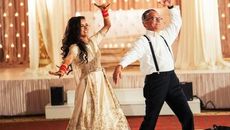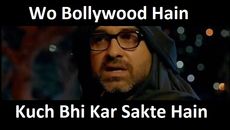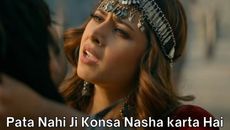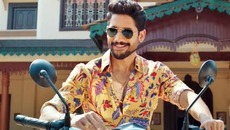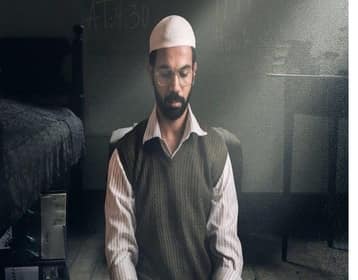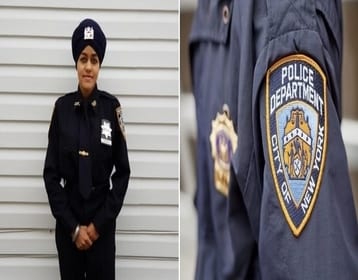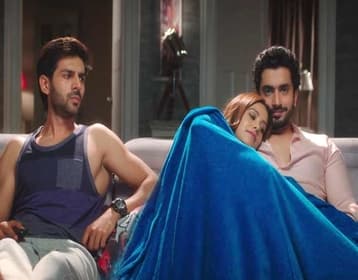Advertisement:
Are you a photography enthusiast? Have you always dreamed of having your own camera? Is this something you've been saving up for since forever? Well, you've come to the right place. Buying a DSLR can be a tough job and there is an ocean of things that you should consider before getting one, so here are listed some super important ones to help you make your big decision!
1. Decide your budget

DSLRs have three categories- the starter range, the semi-professional range and then finally the professional models. If you're just starting off, go with the starter models or if you're already well acquainted with DSLRs, you can try the semi-professional ones. The professional models are in the higher range and have a lot of features which might just altogether confuse you. So, get your hands on the lower range first and upgrade later to the higher ones.
Also Read: Gifts you can give to your boyfriend this christmas!!
Also Read: 20+ Blouse Back Design | Latest Blouse Designs Images.
Also Read: 10 Best Ideas To Impress Guest At Wedding.
Also Read: 8 Things We Can Copy From Indian Celebrity Weddings.
Advertisement:
2. Sensor Size

Don't get scared by the words, it is really simple to understand. A sensor is what actually captures the image and sends it across to the memory card in order for you to see it. A bigger sensor means nothing but more of its capability to capture information and make the pictures crispier.

There are two kinds available with different names but mainly called as "Full frame and mirrorless". Full frame cameras are super expensive because of their clarity and extremely sharp quality of videos and pictures, equivalent to the 35 mm film. APSC sensors are also of the same kind but their visibility is comparatively less.
Mirrorless cameras are basically cameras without an optical viewfinder. They accept different lenses and are super-fast but also consume a lot of battery at the same time. Most of the entry-level cameras have crop sensors.
3. Do not worry about Megapixels

Since we're so used to seeing the megapixel resolution while buying phones, we think that mp resolution equals clarity. This is not true in the case of DSLRs. If you think a higher megapixel resolution is going to equal a clearer picture, that might not be the case. Any resolution above 7 megapixels is going to give almost the same, clear image. What is going to determine the image quality is the lens and the sensor size and not the megapixels.
Also Read: 'New Year, New Me' Outfits You Can Try in 2024.
Also Read: What Will Be Your Relationship Status In 2025? Take This Quiz.
Also Read: 18+ Funny Marriage Quotes For The Newlyweds.
Advertisement:
4. Lens Compatibility

Since you're going to be learning now, you might upgrade at later stages as per your needs. Keep in mind that you should get a camera that is compatible with a wide range of lenses, at least the major ones that you might be using in the future because buying another body just because your lens isn't compatible won't be a very healthy investment.
5. Aperture range

Aperture is the amount of opening allowed while clicking pictures. While clicking pictures in low light, the camera needs more light to come in and it's the reverse case for sunlight. F-number is what defines the aperture, lesser the f-number, more is the opening. Ensure that you have enough aperture range to shoot in different light conditions.
6. Shutter speed and ISO range

Shutter speed is the duration for which your sensor is opened to let the light come in. For fast moving actions, we need a faster shutter speed. Higher shutter speed is going to enable you to shoot in all kinds of lighting and moving objects also more easily.
ISO is the factor that is going to allow shooting in low light. A greater ISO range is very helpful in low light conditions and ISO control is going to help you in sunlight.
Also Read: 70+ Unique Wedding Hashtags We Made Only For Your Grand Wedding.
Advertisement:
7. Body

If you're more of a traveler, go for DSLRs that are easier to carry and also have weather protected body so that they can last longer. Before actually purchasing a DSLR, try handling it in your hand to check the grip and size. If you have to shoot hand-held, the camera shouldn't be very bulky. Rubberized bodies usually make it easier to maintain grip.
8. Purpose and features

Determine which purpose you want this camera for. If you're going to shoot videos, buy a camera that can shoot HD videos at high resolution and higher frame rates that allow smoother actions in the videos than the lower ones. If you're just starting off, it's better to have different modes like auto, portrait, landscape, shutter priority, aperture priority and our very own- manual to help you out throughout your journey.
Advertisement:
These aren't the only features you should consider, but some which need to be looked at. It's better to educate yourself first so that you don't regret it later. Think of what accessories to buy too- as they might come cheaper when bought together than buying individually- a good camera bag, lens cleaning kit, and a tripod are some of the essentials!
Trending Now.
...Play Quiz. →
Trending Memes. →
Latest Stories.
©To Clap2Ram Media (TabloidXO™)
Trending Now
Advertisement:

